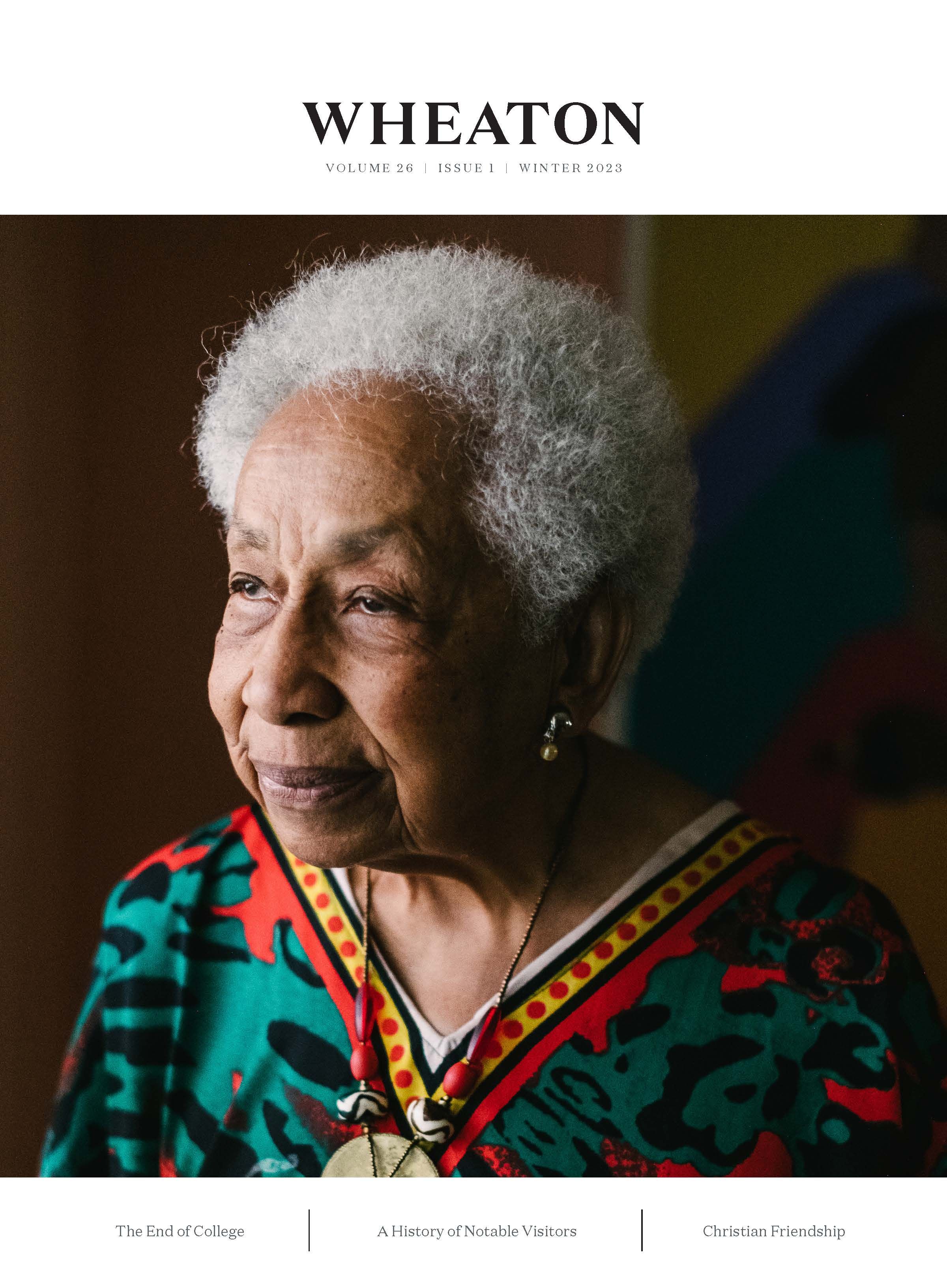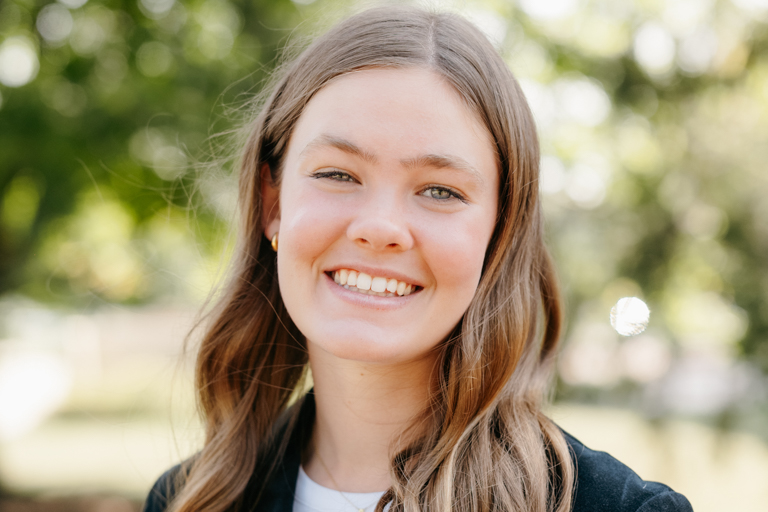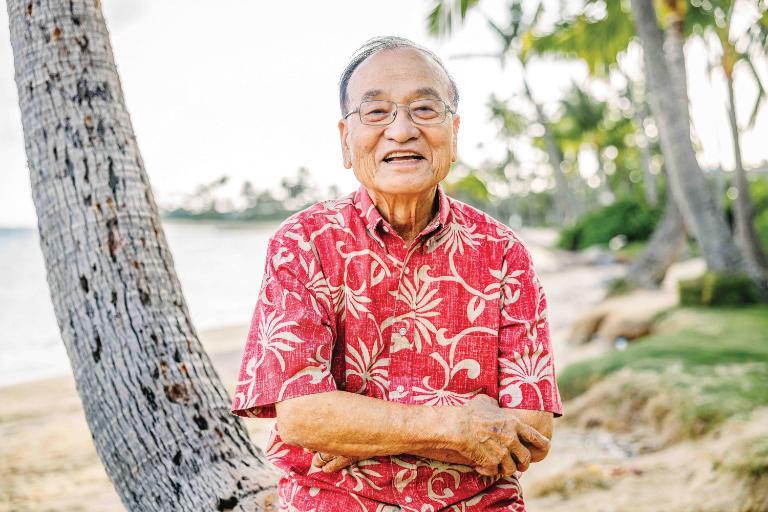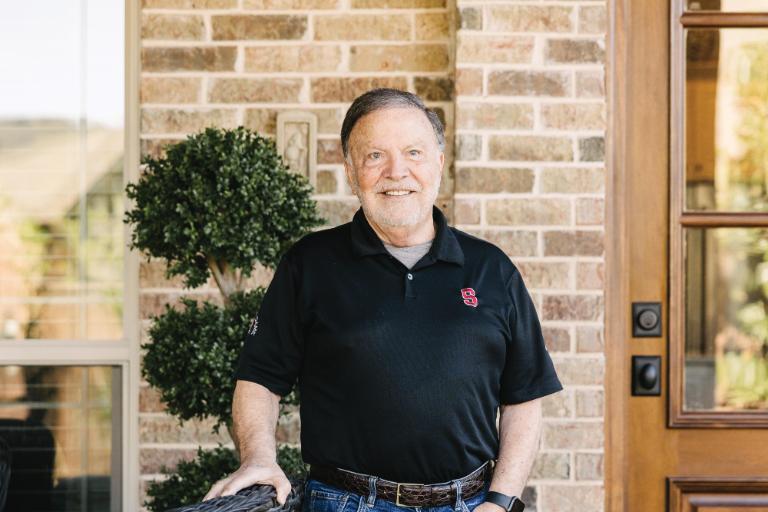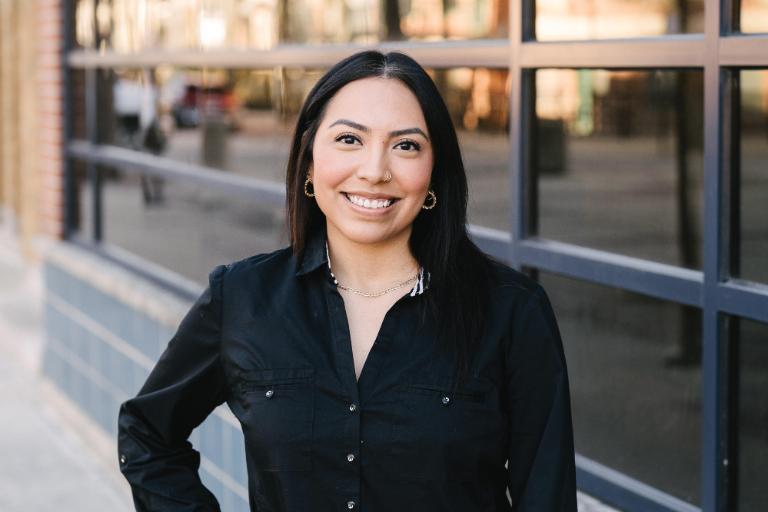“God’s Claim on My Life”
As an Ethiopia-Tigray ceasefire promises a shift after two years of civil war, one Wheaton graduate is using his Christian liberal arts education to love his neighbor.
Words: Grace Kenyon ’21
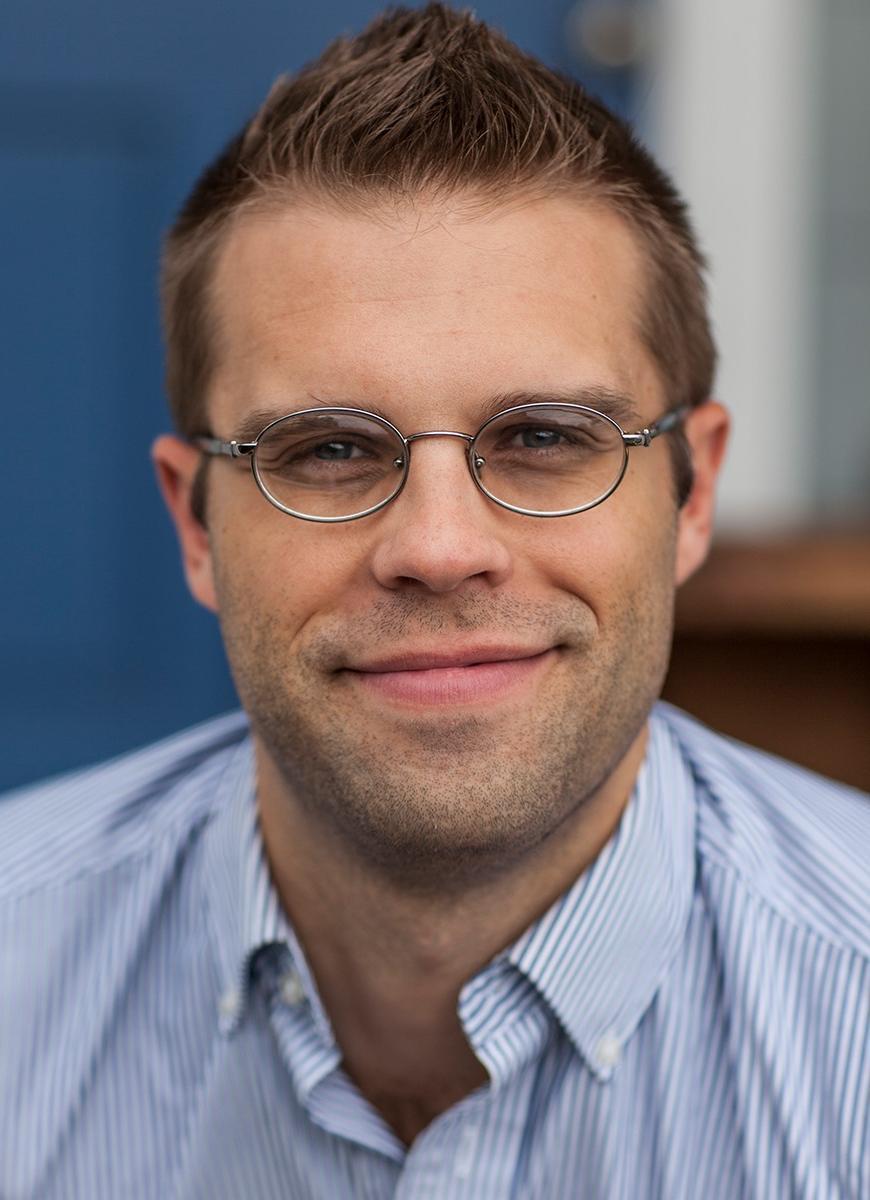
“Wheaton unlocked my worldview in so many ways, to be able to engage with secular thought so fluently and generously and curiously, to be able to see all work as vital to worshiping God and loving our neighbor.”
Andrew DeCort ’05 was 21 years old when he landed in Ethiopia for the first time. He didn’t know who would pick him up from the airport.
It was the summer before his senior year at Wheaton and he found an internship through a connection at his home church, Calvary Church in Naperville. This initial visit to Ethiopia made an impact on DeCort. He remembers the kindness of the people and the ancient richness of the culture. Then he returned to Wheaton for his final year as a theology and philosophy major, an experience he expresses effusive gratitude for.
“Wheaton unlocked my worldview in so many ways, to be able to engage with secular thought so fluently and generously and curiously, to be able to see all work as vital to worshiping God and loving our neighbor,” DeCort said.
The Ethiopia that DeCort fell in love with was and is a mosaic of ethnicities and religious traditions, where the roots of Christianity run deep. In the fourth century, the emperor of the Ethiopian Axumite state converted to what later became Orthodox Christianity in a sweeping, empire-wide movement not unlike Rome under Constantine. What followed was a complicated intertwining of church and state which endured in different forms far into the 20th century. In the 1970s, Ethiopia was ruled by the Derg, a communist regime backed by the USSR. In the 1990s, the Tigray People’s Liberation Front (TPLF) came to power, eventually resulting in a coalition government known as the Ethiopian Peoples’ Revolutionary Democratic Front (EPRDF) that was the most secular Ethiopia had seen in more than a thousand years.
DeCort was not able to stay away from Ethiopia for long. He returned a month after graduating from Wheaton in 2005, and has bounced between Chicago and Ethiopia ever since. Between 2005 and 2016, he returned to Ethiopia three times for one-year stints, also earning a master’s degree in theological ethics and Ethiopian studies from the University of Chicago during that time. He worked as an adjunct professor at Wheaton while earning his Ph.D. in religious and political ethics from UChicago. In 2010 he married his wife, Lily, who is Ethiopian.
As an adjunct faculty at Wheaton, DeCort was co-leader of a program called Authority. Action. Ethics. Ethiopia or AAE Ethiopia along with Dean for Student Engagement Dr. Steve Ivester and Department Chair of Christian Formation and Ministry Dan Haase. This program included a 16-week intensive study of Ethiopian history and culture followed by a three-week trip that Ivester calls a “safari of leadership development.” The trip took students to visit street ministries, centers of political power, and everything in-between. The program was dissolved when Andrew returned to Ethiopia in 2016.
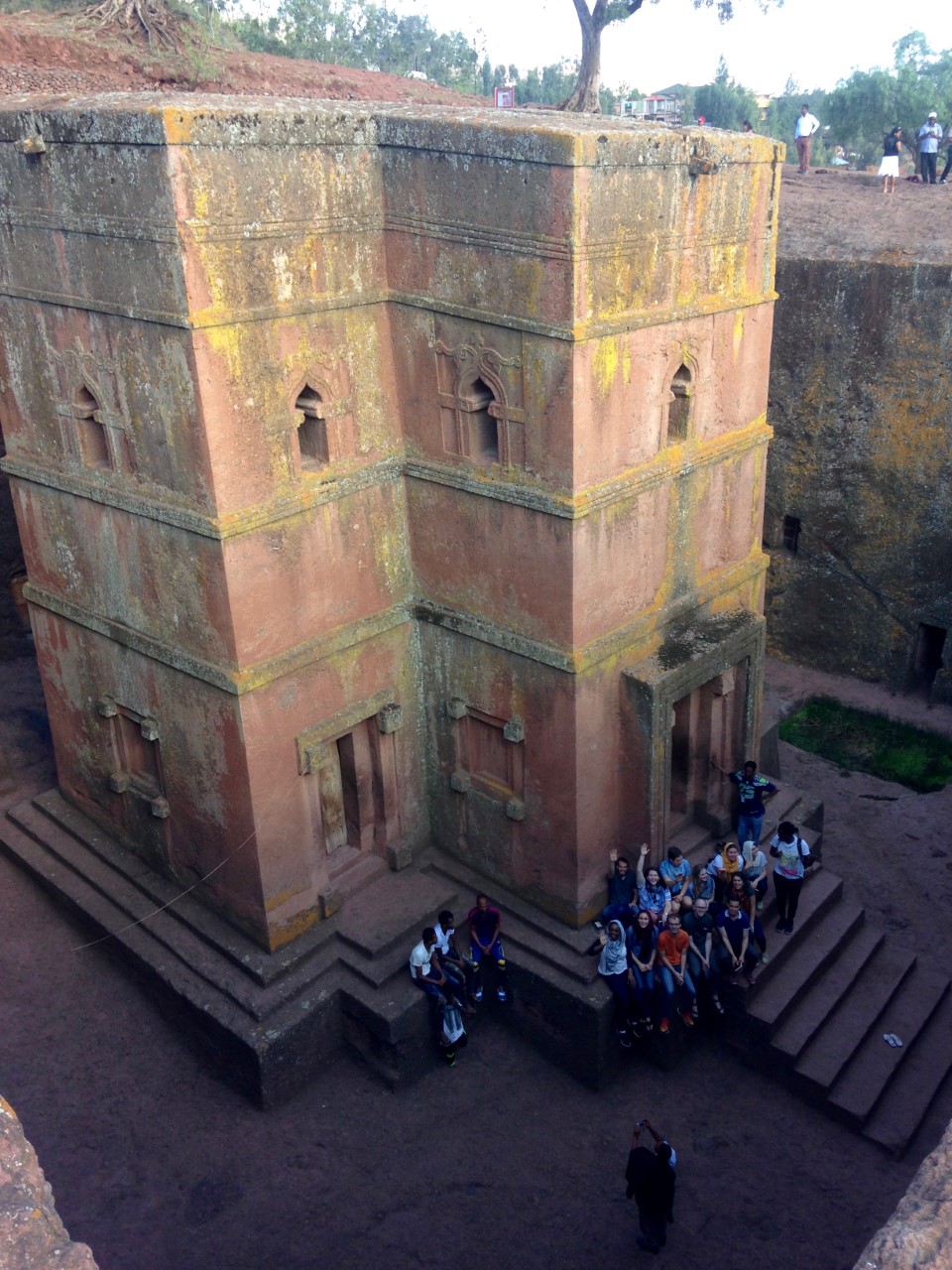
Exploring Ethiopia
When asked about his multiple decisions to return to Ethiopia, repeatedly leaving the Christian, academic comfort zone and venturing into an increasingly-tense political and religious atmosphere, DeCort answered thoughtfully and deliberately.
“The womb is a precious gift of God,” he said. “That’s where we’re formed. That’s where we’re nourished. That’s where we experience incredible safety. We can hear our mother’s voices. That’s the beginning of our lives, but we’re not meant to live in the womb.”
DeCort went on to apply this metaphor to places of Christian nourishment, like schools and churches, that prepare us to go into the world and extend that safety and love to others.
There was another, even more personal reason DeCort felt compelled to return to Ethiopia. In 2010, DeCort and his colleagues met a young boy named Eyob on the street in Addis Ababa, Ethiopia. Eyob had a severe, untreated head wound and while he was subsequently given medical care, he eventually died of a brain tumor. Eyob took with him an ardent dream to become a pastor and minister to those who suffer.
Eyob, whose name is the Ethiopian equivalent of Job, was in many ways DeCort’s inspiration to contribute to the cause of peace and love in Ethiopia. DeCort kept a picture of Eyob under his graduation robe when he earned his doctorate, by his heart.
“We really met Jesus in Eyob,” DeCort said. “When I went to UChicago to study ethics, Eyob was in my heart the whole time.”
When Andrew moved back to Ethiopia once again in 2016, he had plans to train pastors through the Ethiopian Graduate School of Theology (EGST) in Addis Ababa. He knew more than he did when he was 21, but Ethiopia was entering a period of escalating upheaval. There were massive protests and horrific public executions while EPRDF was in power, and these human rights abuses continued into the administrations of the first Protestant prime minister and subsequently the first evangelical prime minister, Abiy Ahmed (who came to power in 2018). Abiy was awarded a Nobel peace prize in 2019 for repairing relations with Ethiopia’s long-time enemy Eritrea, but has since partnered with Eritrea in waging a hushed-up civil war against the northern Tigray region, where past leaders of the TPLF have taken refuge.
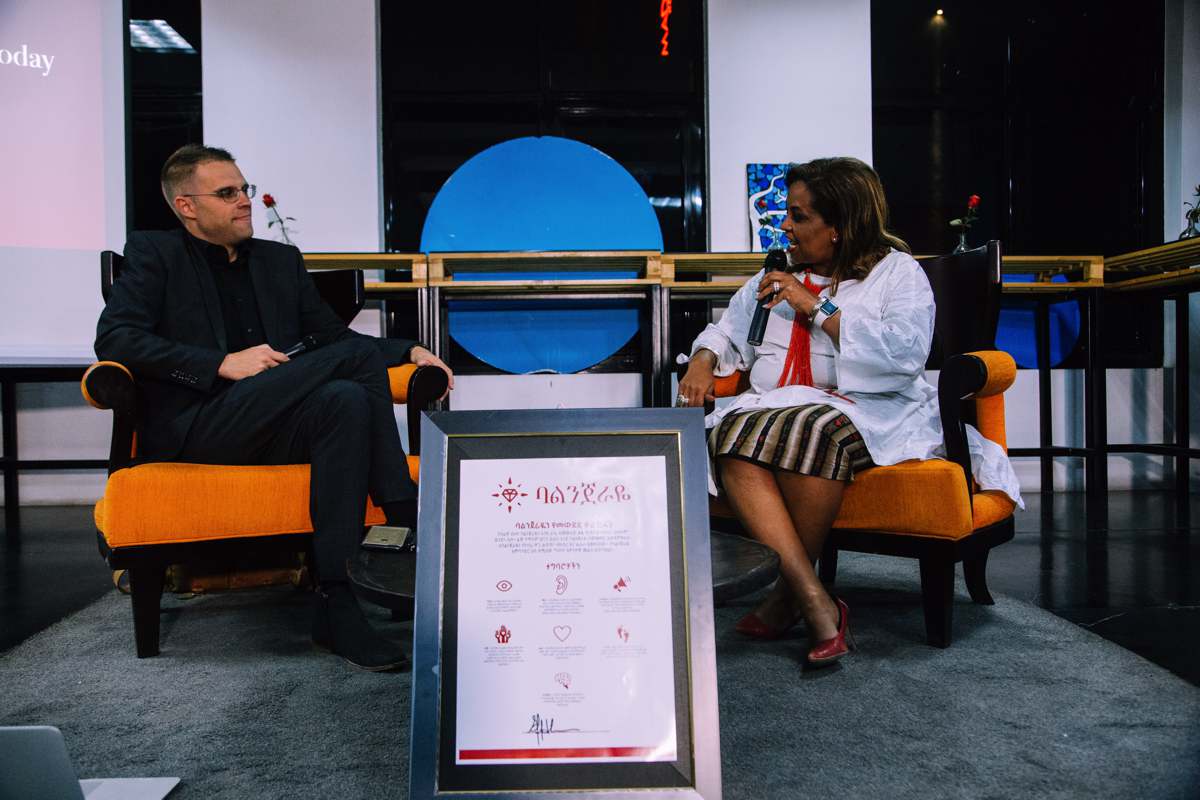
Andrew DeCort has participated in many panel presentations on peace and loving one’s neighbor.
Weighed down by the violence and hatred erupting around him, DeCort felt compelled to leave the “Christian island” of the EGST. He founded the Institute for Faith and Flourishing (IFF) in 2016, an organization that had previously provided funding and leadership for his work at EGST, and launched the Neighbor-Love Movement in 2019. Both organizations focus on education and empowerment, utilizing resources like books written by DeCort and co-founder Dr. Tekalign Nega, workshops and courses for youth, and a massive social media campaign that reached 20 million people in 2020. This work is targeted toward what DeCort identifies as the root of the problem in Ethiopia: “othering,” or seeing other people as unrelated to yourself because of religious, ethnic, or political identity.
According to DeCort, “othering” has become even more prevalent in recent years as leaders (including the openly Christian Abiy) tap into a resurging Christian nationalism and use dehumanizing language to refer to religious and ethnic minorities. This dangerous language, according to DeCort, resembles the rhetoric of other genocidal leaders throughout time and makes the work of reconciliation even more urgent.
In the face of this danger, the Neighbor-Love Movement invites Ethiopians of any religious or ideological background to commit to a covenant of embodied love. Most of the people DeCort works with have little political power and few monetary resources, but they can practice embodied love in any circumstance.
“If you want to live this neighbor-love covenant, start in your body: the way you see, the way you listen, the way you speak, the way you walk,” DeCort said.
On November 2, the Ethiopian government and the leaders of the TPLF signed a peace deal. It is unclear whether this development will put an end to the mass killings, mass sexual assaults, and a blockade of resources to the Tigray region that made Ethiopia home to the most internally displaced people in the world in 2021. DeCort says he and his colleagues are cautiously hopeful.
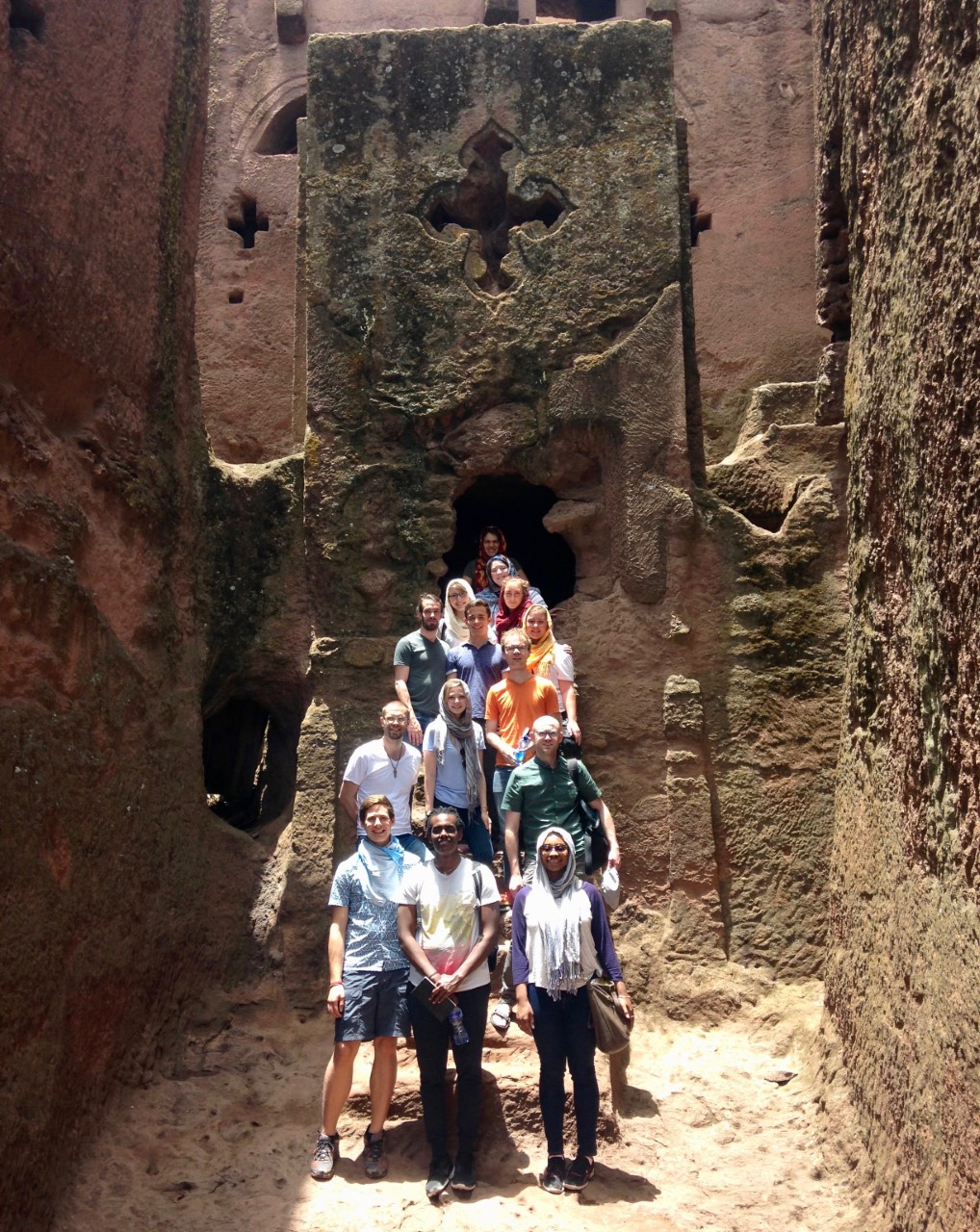
Andrew DeCort with students in Ethiopia.
IFF and the Neighbor-Love Movement continue their work, evolving to reach different audiences and adapt to the dangers of peace-making efforts in a context where affirming the dignity of the “enemy” or “other” can be seen as subversive. DeCort moved back to Chicago in May 2021 after receiving dozens of death threats, but he and Dr. Tekalign have shifted their focus to developing personal relationships and offering training on peacemaking with leaders, churches and community elders. In November, DeCort released his latest book, Flourishing on the Edge of Faith: Seven Practices for a New We (BitterSweetBooks, 2022), which is about spiritual practices derived from the Lord’s Prayer. Dr. Tekalign is working on a book on neighbor-love and ethnic identity, which will be the first of its kind in any Ethiopian language.
Ivester is still invested in DeCort’s work as a board member of IFF, and says that his participation has made a great impact on how he prays, leads and serves.
“It’s given me an expansion of my heart for those that I love and need to love that are my neighbors here,” Ivester said. He also speaks highly about DeCort, adding, “His brain resides in his heart. He is both deeply biblically grounded, theologically, but spiritually and relationally vibrant and quite radical in the best ways possible.”
Ivester highlights Wheaton’s continued effort to equip students to apply what they learn in the classroom to this kind of kingdom work. DeCort, hearkening back to his three years running the AAE program at Wheaton, asks if he can read me an excerpt from Dietrich Bonhoffer’s sermon from Barcelona in 1928, which they read at the beginning of each class:
“Jesus Christ is also in us every step we take, in every person we meet . . . Jesus Christ, God himself, speaks to us from every human being; the other person, this enigmatic, impenetrable You, is God’s claim on us; indeed, is the holy God in person whom we encounter.”
These words continue to inspire DeCort to leave his comfort zone, nurturing a faith that nudges him further.
“You’ve gotta leave home and find out that home is everywhere,” DeCort said. “You’ve gotta leave church and find out the church is everywhere. You’ve got to stop only hanging out with Christians and find out that you can meet God in everyone.”
